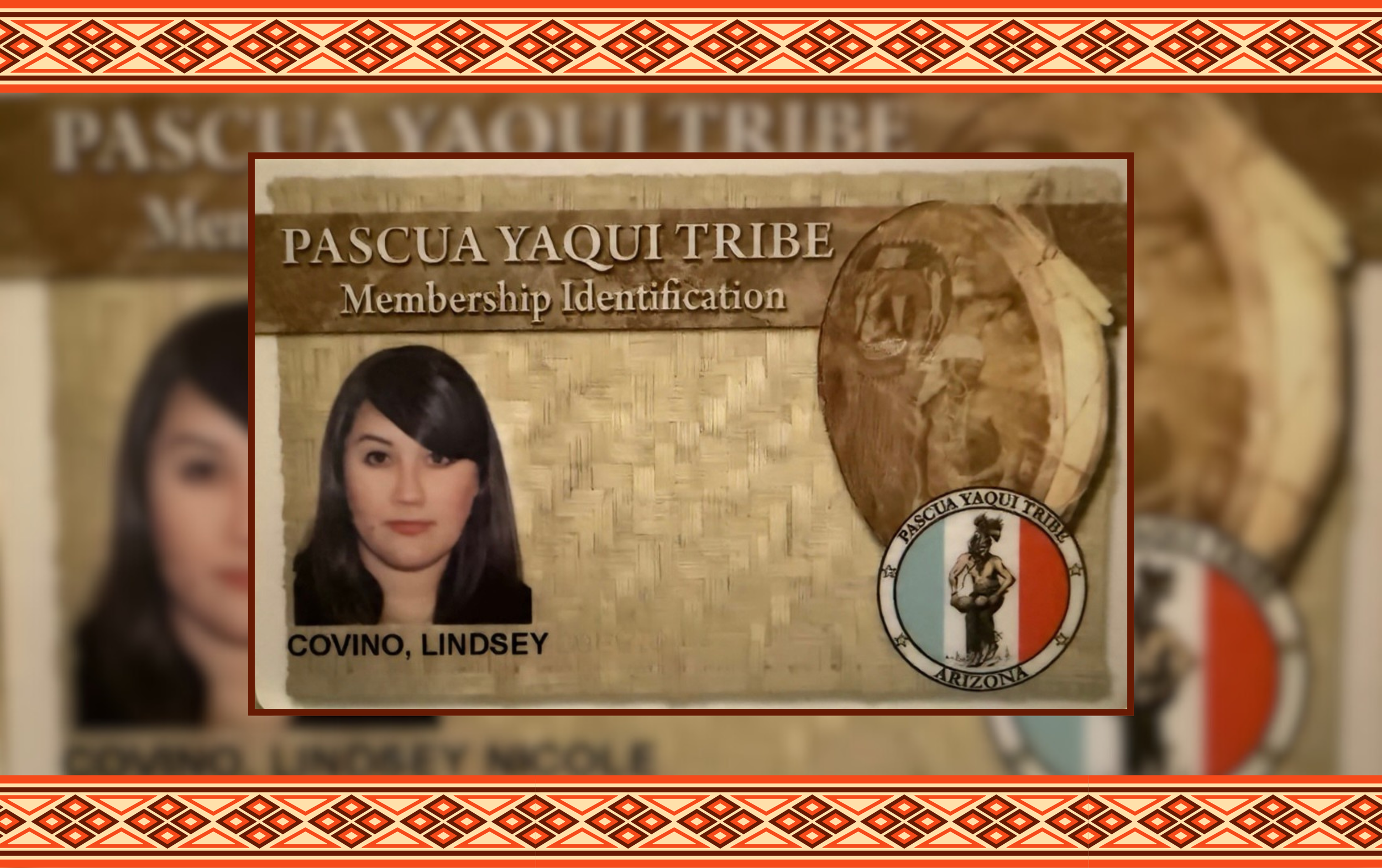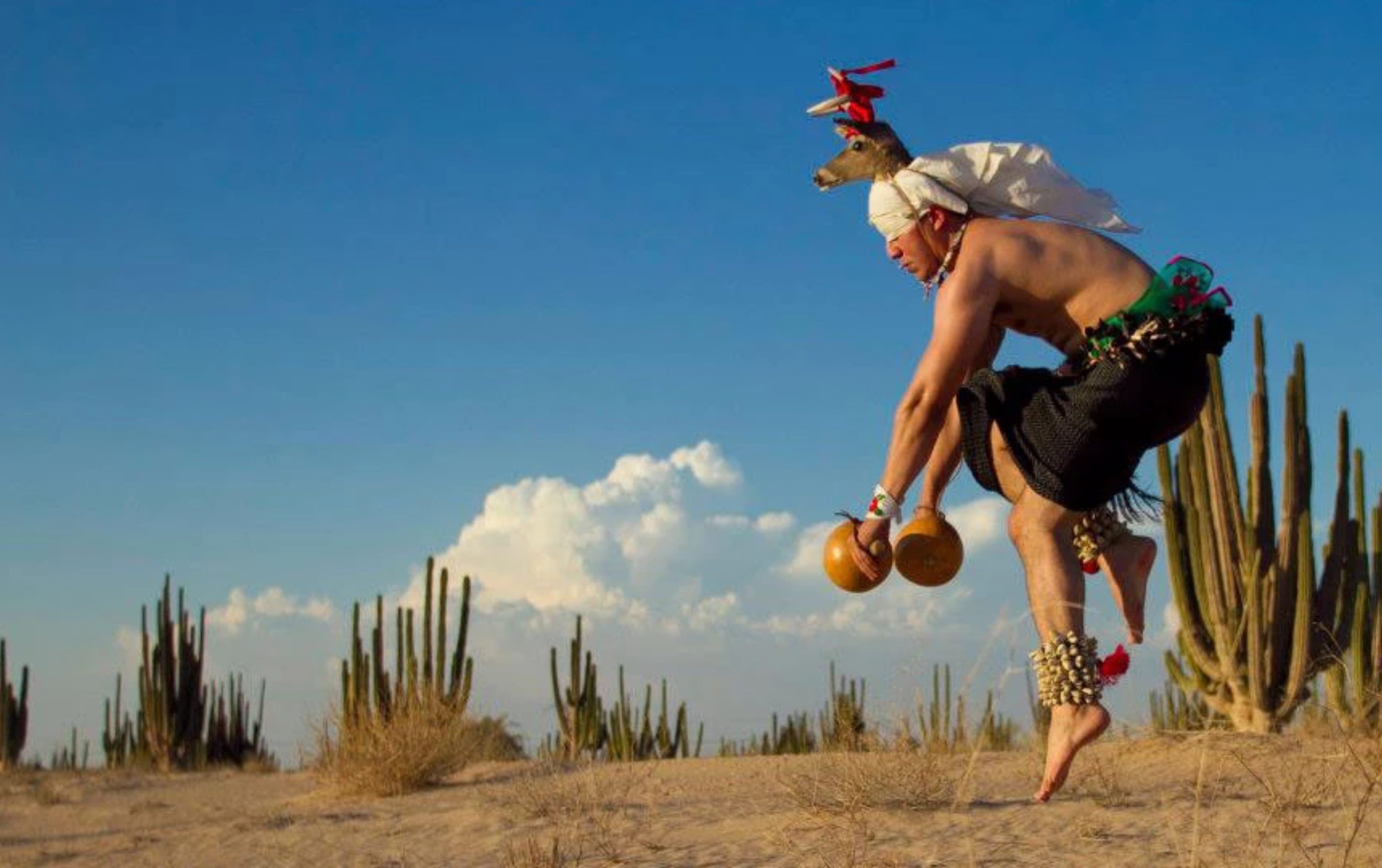
Lindsey Covino always knew she was a third-generation Mexican American and that her paternal grandmother was Indigenous. But she didn’t know much about her Native American heritage—until 2015, when she discovered that she was Pascua Yaqui, a federally recognized tribe based near what is now Tucson, Arizona.
In 2016, Lindsey officially became an enrolled tribal member. Reflecting on that experience, she says,
“Visiting the town of Guadalupe, Arizona, and receiving my tribal ID brought up a mix of emotions. I felt curious and excited to connect with my roots and learn more about my culture, but I also felt like an outsider since I didn’t grow up in that environment.”
Motivated to better understand her grandmother’s legacy, Lindsey began learning about her tribe’s history and the resilience of her elders. She explains,
“Historically, the Yaqui resisted colonization by both Spanish and Mexican forces. Many migrated to the U.S. to escape persecution. Despite all the displacement, the Yaqui have held onto a strong cultural identity, known for rich traditions like the Deer Dance and Easter ceremonies. Indigenous people have faced discrimination, poverty, and marginalization—not just from Europeans, but from Mexican society too. It reinforced how important it is to belong somewhere and to hold onto your cultural identity, traditions, and rituals despite the displacements and hardships.”
Today, Lindsey brings this understanding into her work as the CASA Initial Advocacy Manager, where she matches CASA volunteers with youth in foster care. Whenever possible, she strives to connect youth with CASAs who share similar cultural identities or lived experiences.
“CASAs help Native youth stay connected to their tribal community and culture,” Lindsey says. “They might encourage participation in cultural events or explore tribal language and traditions together—by visiting the library or researching online. Providing opportunities for cultural continuity in a child’s life is important for their sense of identity and belonging.”
The Indian Child Welfare Act (ICWA) was designed to help keep Native children connected to their families and tribes. It was enacted in response to decades of Native children being removed from their homes by federal agencies—a practice that caused deep cultural and generational trauma. CASAs can play a crucial role by working with ICWA social workers to help advocate for placements and connections that support a child’s cultural identity.
Lindsey shares one of her favorite concepts from Yaqui culture:
“Seataka is a complex Yaqui spiritual idea that describes a person who has an intuitive sense of compassion and kindness toward others. It signifies an alertness and deep consideration for people. Someone acting out of seataka would be driven to help their community and their people—much like CASAs do.”

